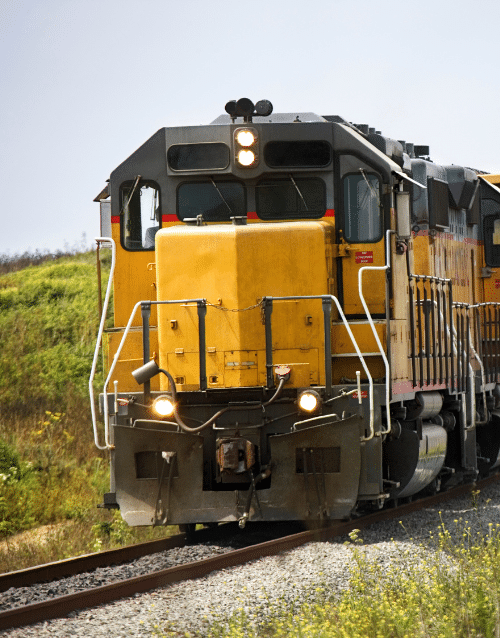Common Railroad Worker Injuries
From rolling train engines and railcars to falling cargo, railroad workers face dangerous work conditions every day. The jobs they perform around locomotives, in railyards, and on railroad tracks can lead to catastrophic injuries and long-term illness.
If you were hurt while working for a railroad company in Virginia, you may be entitled to significant compensation for your injuries and losses. You can recover your compensation by filing a claim under the Federal Employer’s Liability Act, also known as FELA. However, fighting for justice and accountability on your own is an uphill battle.
The knowledgeable and compassionate attorneys at Cooper Hurley Injury Lawyers can make sure you know your full legal rights and options, as well as help you file a claim. Contact us today to schedule your free, no-obligation consultation.
Common Injuries Sustained by Railroad Workers
In September 2023, a 56-year-old railroad worker died when a train struck him at a railyard in Ohio. His death is a stark reminder of how hazardous these environments can be. Railroad workers can experience all manner of injuries, ranging from minor scrapes and bruises to life-altering brain damage. No matter the circumstances, our railroad accident lawyers are ready to evaluate and handle your case.
Head Injuries
A head injury from falling cargo, tools, and equipment can be extremely painful and potentially life-threatening. Railroad accidents, including accidents caused by falling objects or collisions with moving objects, often result in skull fractures, concussions, and traumatic brain injuries. These types of incidents can cause short-term and long-term cognitive and physical impairment.
Back Injuries
Railroad workers frequently lift and move heavy objects, including cargo, train parts, and rail equipment, all of which can strain the spine and back muscles. Slip-and-falls and falling objects can also injure a worker’s back. These injuries can lead to chronic pain, as well as make it difficult for workers to stay employed and get around in their day-to-day lives.
Burns
The risk of electrical and chemical burns is nearly constant for rail workers. Explosions, fires, chemical solvents, and ruptured hoses all have the potential to cause serious burns. Unfortunately, burns are some of the most serious injuries we handle in our personal injury practice. Often, burn victims need skin grafts, rehabilitation, and treatment for long-term pain.
Repetitive Motion Injuries
Unlike other types of injuries, which tend to occur suddenly during an accident, repetitive motion injuries develop gradually over time. Railroad workers spend much of their time bending over, crouching, and lifting heavy objects. Over time, repeating these motions every day can cause chronic pain and damage to the spine, muscles, and joints.
Hearing Loss
Although the Federal Railroad Administration has implemented strict noise limits for locomotive cabs, the working conditions in and around trains, railways, and railyards remain extremely noisy. The constant presence of loud noise can cause hearing loss and, in the worst cases, deafness. These conditions are often irreversible and require ongoing care and rehabilitation.
Broken Bones
If you work on a railroad, you may spend a lot of your time walking on uneven surfaces, dealing with oil and other slick substances, or traversing across unstable ballast. All of these activities can lead to falls and broken bones. Fractures and breaks often require surgery and physical therapy during treatment. They also take time to heal, leaving injury victims unable to work during recovery.
Electrocution
Electrocution is a significant risk for workers servicing rail cars. Touching live wires and poorly maintained machinery can cause electric shocks that burn the skin, nervous system, and internal organs. Needless to say, this type of injury can lead to many serious consequences, including deep burns, tissue damage, internal injuries, and cardiac arrest. Our electrocution injury lawyers can help if you’ve suffered an electric shock injury on the railroad.
Amputation
When a part of your body is lacerated or crushed, it may lead to permanent disfigurement or impairment that hinders your ability to move or work. In some cases, doctors may have to amputate the injured limb, perhaps even requiring victims to use a prosthetic. Of course, this can cause substantial loss in mobility and severely impact their overall quality of life.
Common Illnesses Caused by Railroad Work
Injuries are not the only threat to railroad employees. Workers in this industry are also at risk of developing serious and sometimes terminal illnesses.
Chemical Exposure
Contact with toxic chemicals is common for railroad workers. For example, diesel fumes from locomotives and degreasing solvents used on train parts and railways often contain benzene. According to the National Cancer Institute, long-term exposure to benzene increases the risk of developing leukemia, among other things.
Mesothelioma
For decades, manufacturers used asbestos to create products used in locomotives and rail yards, including insulation, brakes, and gaskets. Although asbestos is no longer a popular material, it is still present in older trains and buildings. Asbestos is the only known cause of mesothelioma, a type of deadly cancer. Symptoms of mesothelioma include chest pain, coughing, and shortness of breath.
Other Cancers
The materials rail companies use to build and service their trains and railways contain a variety of other carcinogens. These include creosote, arsenic, lead, vinyl chloride, and sodium nitrate, all of which are known to increase the risk of various cancers and other illnesses.
Lung Disease
Railroad workers are among the industry groups most likely to suffer from asbestosis, another chronic lung condition. Many workers in the industry also develop chronic obstructive pulmonary disease because of their frequent exposure to diesel exhaust.
A FELA Lawyer Can Help If You Were Injured on the Job
Dealing directly with a railroad claims agent rarely results in a fair settlement because their job is to look out for the railroad’s interests rather than yours. This means that getting the full and fair compensation you deserve can be challenging without the assistance of a railroad injury lawyer experienced in handling FELA cases with rail companies like Norfolk Southern and Brightline.
Reach out to the personal injury attorneys at Cooper Hurley Injury Lawyers for assistance. We provide free, no-obligation consultations. Further, you pay nothing unless we win your case.
Remember, the health conditions discussed on this page are by no means an exhaustive list of railroad worker injuries and illnesses you might experience due to a workplace accident and hazardous working conditions. If you are unsure whether your medical condition creates a valid claim, a FELA lawyer at Cooper Hurley Injury Lawyers can help.
Contact the FELA Lawyers at Cooper Hurley Injury Lawyers
As we all know, the legal system can be complicated, and even lawyers with years of experience are often unfamiliar with the unique demands of FELA litigation. By working with a qualified railroad injury attorney at Cooper Hurley Injury Lawyers, you will significantly increase the odds of securing the full and fair compensation you are entitled to.
Under the leadership of founding partner John Cooper, who is a member of the Academy of Rail Labor Attorneys and a Virginia Super Lawyer, our legal team has developed a strong reputation among our clients and in the legal community. We have a proven history of recovering millions in damages for our personal injury clients, including over $300,000 for an accident victim at Norfolk Southern.
Contact our legal team to learn more about your railroad injury rights, find specialized resources for railroad workers, and determine how to move forward with your railroad injury claim. Do not wait to schedule your free case evaluation and take the first step on the path toward accountability and compensation.
Find Out What Your
Case is Worth
Testimonials








